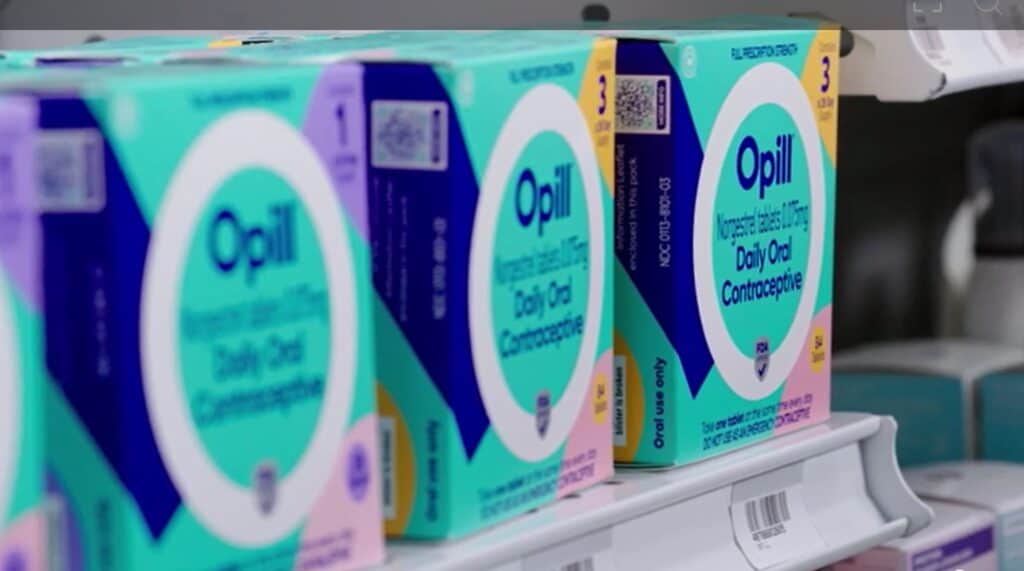Why Doulas Are a Game-Changer for Every Woman’s Birth Experience
A doula is a trained professional who provides physical, emotional, and informational support to individuals before, during, and after childbirth. The word “doula” comes from the ancient Greek term for “servant” or “woman who serves.” While they are not medical professionals, doulas play a key role in ensuring that parents feel informed, supported, and empowered throughout the birthing process. Their work can extend beyond labor, providing guidance during pregnancy and postpartum care as well.
Doulas Have Specializations

Doulas may specialize in different stages of childbirth:
- Birth doulas provide support during labor.
- Antepartum doulas assist individuals experiencing high-risk pregnancies.
- Postpartum doulas help families adjust to life after the baby is born.
Why You Might Want a Doula

Choosing a doula can offer numerous benefits, particularly for those looking for a more personalized birthing experience. Here are some reasons you might want one:
- Emotional and Mental Support: Doulas offer continuous emotional support, which can reduce anxiety and fear during childbirth. Their calming presence has been linked to a greater sense of security and reduced levels of maternal stress.
- Advocacy and Information: Doulas are advocates for the birthing person’s preferences. They can help ensure that birth plans are respected and can explain medical procedures in plain language, helping parents make informed decisions.
- Physical Comfort: Doulas use techniques such as massage, breathing exercises, and positioning to reduce discomfort during labor. They are skilled in various non-pharmacological pain management methods, which can help those seeking a natural birth.
- Reduction of Interventions: Numerous studies suggest that having a doula reduces the likelihood of medical interventions such as epidurals, cesarean sections, and the use of forceps or vacuum extraction. This can lead to shorter labors, fewer complications, and a quicker recovery.
- Postpartum Assistance: After birth, doulas can help with newborn care, breastfeeding support, and postpartum recovery, offering practical advice and emotional guidance during this adjustment period.
How Doulas Make a Difference: The Statistics

The impact of doula care has been studied extensively, and the results are compelling. According to a systematic review published by the Cochrane Database of Systematic Reviews, continuous support from a doula during labor leads to significant positive outcomes:
- 50% reduction in the cesarean rate: Women who have the continuous support of a doula are less likely to undergo cesarean sections.
- 25% shorter labor: Doulas help reduce the length of labor by providing consistent support, which can help the birthing person feel more at ease.
- 40% reduction in the need for forceps or vacuum extraction: Doulas can reduce the use of instruments that may be used to assist in delivery, lowering the risk of trauma to both the mother and the baby.
- 60% reduction in epidural requests: Doulas provide alternative pain relief methods, which may reduce the need for epidurals and other forms of pain medication.
Doulas = Better Birth Outcomes

A study from the American College of Obstetricians and Gynecologists (ACOG) also supports the idea that continuous support from doulas leads to better birth outcomes. In addition, they found that people who used doulas reported greater satisfaction with their birthing experience.
Where Doulas are Popular

The use of doulas has grown significantly in the United States over the last two decades, though their prevalence varies by region. Doulas are particularly popular in cities and states with strong midwifery and holistic care communities, such as:
- California: In cities like San Francisco and Los Angeles, where alternative healthcare is widely embraced, doulas are commonly employed to support both natural and hospital births.
- New York: Doula care is well established in major metropolitan areas like New York City, where many hospitals have embraced integrative care models that include doula services.
- Pacific Northwest: Portland, Seattle, and surrounding areas are known for their strong emphasis on natural and holistic healthcare, making doulas a popular choice.
- Texas: Certain cities in Texas, such as Austin, have a growing doula community, particularly among parents seeking a more personalized birth experience.
You Can Find Doulas All Over The World

- Globally: Countries like the UK, Canada, and Australia also have strong doula networks, and in some regions, doulas are integrated into the healthcare system. In the Netherlands, for example, midwives and doulas often collaborate to provide care.
Doulas are becoming more common in smaller cities and rural areas, though access may be more limited due to fewer professionals in these regions.
Does Insurance Cover Doula Services?

One of the most frequently asked questions about hiring a doula is whether their services are covered by insurance. In many cases, the answer is a bit complicated.
Private Insurance

In the United States, some private insurance companies do cover doula services, but coverage can vary greatly between providers and policies. Generally, insurance may cover a portion of the doula’s fee if it is deemed a necessary part of the birth plan. However, because doulas are not medical professionals, their services are often classified as elective or non-essential.
States Vary

Some states, like Oregon and Minnesota, have passed legislation mandating that Medicaid cover doula care, making it easier for lower-income individuals to access these services. More states are considering similar legislation, which would make doula care more widely available to all income levels.
Medicaid and State Programs

As of 2023, a growing number of states are including doula care under Medicaid programs. States like New York, Oregon, and Washington have pioneered the movement, recognizing the role doulas play in reducing maternal and infant mortality rates, particularly in underserved communities. The federal Maternal Health Quality Improvement Act, passed in 2021, has encouraged more Medicaid programs to consider covering doulas as a way to improve birth outcomes and address disparities in maternal care.
Reimbursement

Even when doula services are not explicitly covered by insurance, many people are able to use their Health Savings Accounts (HSA) or Flexible Spending Accounts (FSA) to pay for them. This allows for some degree of reimbursement, though not all expenses may be covered.
Conclusion

Doulas offer a valuable service that has been shown to improve both birth outcomes and parental satisfaction. Their emotional, physical, and informational support can make labor a more positive experience, reducing the need for interventions and improving overall health outcomes for both the birthing person and the baby. While insurance coverage for doulas is still evolving, there is increasing recognition of their importance, particularly in regions that prioritize holistic or integrative health care.
Will You Hire A Doula?

Hiring a doula can make a significant difference in how you experience childbirth. Whether you’re looking for continuous support during labor, postpartum assistance, or simply peace of mind, a doula can help you navigate the journey with confidence. As more states move toward recognizing and reimbursing doulas, their services may become accessible to a wider range of parents in the future, making them an integral part of modern maternity care.
Could Extreme Heat Harm Your Pregnancy? Here’s What Doctors Are Saying

As climate change intensifies and extreme heat waves become more common, the effects on human health are increasingly concerning. One particularly vulnerable group is pregnant women, for whom rising temperatures pose significant risks. Research is now highlighting the troubling link between extreme heat exposure during pregnancy and a range of complications, including stillbirths, miscarriages, and preterm births.
READ: Could Extreme Heat Harm Your Pregnancy? Here’s What Doctors Are Saying
The Hidden Risks: 20-plus Foods and Supplements That Threaten Birth Control Safety

Certain foods, herbs, and supplements can potentially make your birth control less effective. We take birth control to prevent pregnancy, so if something compromises the efficacy, we should be well aware and act appropriately. Unfortunately, many of our medical professionals do not provide this education. Here is a detailed list of these items.
READ: The Hidden Risks: 20-plus Foods and Supplements That Threaten Birth Control Safety
Coming Off Birth Control: What To Expect And How To Make It Easier

The birth control pill serves as a vital tool for managing reproductive health. However, there comes a time for many individuals when they contemplate discontinuing its use. There are ways to make the transition easier; let’s look at what is in store. READ Coming Off Birth Control: What To Expect And How To Make It Easier
Over-The-Counter Birth Control Pill Becomes Available For The First Time

In a groundbreaking move, Perrigo has commenced the distribution of Opill, the first nonprescription birth control pill in the United States, to retailers across the nation. This pivotal development promises to empower millions of individuals by ushering in a new era of reproductive health access. Read: Over-The-Counter Birth Control Pill Becomes Available For The First Time
Join Us

Join us on this empowering journey as we explore, celebrate, and elevate “her story.” The Queen Zone is not just a platform; it’s a community where women from all walks of life can come together, share their experiences, and inspire one another. Welcome to a space where the female experience takes center stage. Sign up for our newsletter so you don’t miss a thing, Queen!







